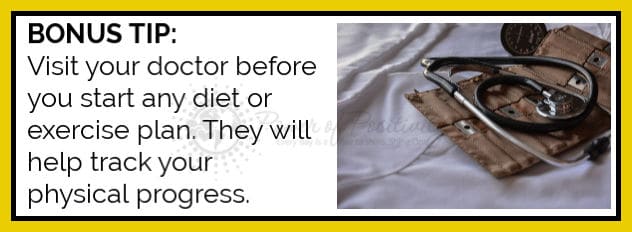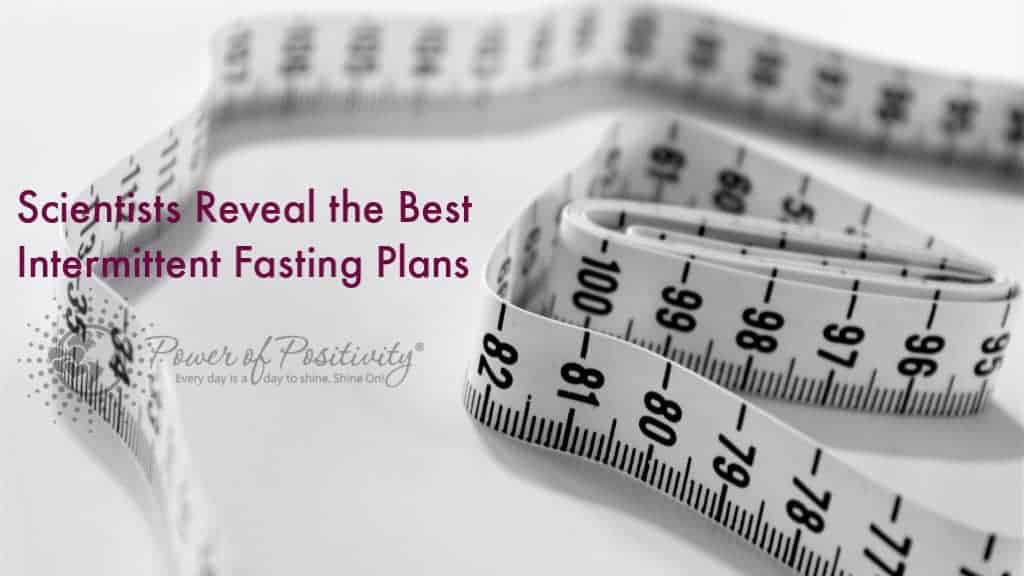There are a handful of different intermittent fasting plans. Therefore, you will have to figure out which one is best for you and your lifestyle.
Since there are so many different fasting plans, you are sure to find one that works well for you and that you are comfortable with. You may even be able to combine a couple of different methods and create your own plan that fits well.
Fasting of any kind requires that you go for a period of time without eating. Thus, you will lower your calorie intake and burn body fat. Not only that, but it also has other benefits for your body. Indeed, you will increase your strength and return your body to its optimal state. Over time it’ll become easier for you and your body will be used to the new eating plan. Therefore, you’ll make it less likely that you’ll give in to cravings on a fasting day or binge on an eating day.
Of course, before you jump into a fasting plan, you likely want to know a few more details about this type of fasting first. So, before heading into the plans, you will read what intermittent fasting is, the history of it, and whether or not it’s safe (it is, by the way). Then, you will read about what scientists reveal are the best fasting plans.
What is Intermittent Fasting?
Intermittent fasting is when you go a short period of time (about 12-14 hours) without eating in order to allow your body to use some stored energy (body fat). Some may confuse fasting with starvation, but that is definitely not the case. The two are quite different, as this type of fasting is controlled, timed, deliberate, and done for health purposes rather than to deplete your health.
Fasting is done by those who have enough body fat (they aren’t underweight), and should never cause any kind of suffering. It occurs at any time when you aren’t eating. This could mean the time after dinner until breakfast the next morning, as long as you aren’t having snacks between those times.
Is Fasting For Nutrition Purposes a New Concept?
This type of fasting only lasts for short periods of time (unlike when fasting occurs for religious purposes) and has been a known but uncommon practice for centuries. The term “breakfast” even shows just how old this concept is because, when separated, the term is actually “break-fast”, as in “break the fast”.
Is Intermittent Fasting Safe?
Since it is only done for short amounts of time (14-24 hours) each day, intermittent fasting is safe if you are in good health, are not under-weight, pregnant, or breastfeeding, and you are still getting all of your necessary nutrients.
On the contrary, when this type of fasting is done correctly, it is actually beneficial to your health. This is because in order to restore your bodies balance or to lose weight, you have to go for a period of time each day without eating in order to burn food energy.
It is important to note that if you choose to fast for longer than 24 hours, you should receive medical guidance and monitoring throughout the process.

The Best Intermittent Fasting Plans
1. Eat Stop Eat
This fasting plan requires that you fast for 24 hours once or twice a week, on non-consecutive days. The other 5 days you will consume, as usual, keeping within your calorie and nutrient goals.
Now, this doesn’t mean to not eat at all for a full day. Instead, it actually means not eating from dinner one night until dinner the next night. You will still eat on both of the days. However, you will allow 24 hours to pass in between meals. This could be done from lunch to lunch or breakfast to breakfast, as well.
If you struggle to do a full 24-hours right away, begin smaller with a 14 or 16 hour fast instead. Then, work your way up to the 24-hours. The biggest benefit, however, is that during your eating periods, you can literally eat whatever you want. You have no restrictions.
2. The 5:2 Method
This diet is similar to the Eat Stop Eat method because you consume as usual 5 days of the week, and you only fast for two days. The difference between the two methods, however, is that with the 5:2 Method, you don’t cut out all calories on the 2 days of fasting. Instead, you will cut your calorie consumption back to about 500 or 600 calories on those two days.
On the two fasting days, you could eat one healthy meal, or you could do two very small meals to make up your 500 calories. Many experienced fasters recommend making your two fasting days your busiest days of the week, as it will help you stay busy and avoid thinking about food.
3. The Warrior Diet
Ori Hofmekler, a fitness expert, raved about it and popularized it. It requires that you eat a small number of raw fruits and vegetables throughout the day to get you by, and then one large meal for dinner. To break it down a little more, you will fast all day (but you are allowed fruits and veggies), and then you consume the rest of the calories and nutrients you need during a 4-hour window in the evening or at night.
4. Alternate-Day Fasting
As the name of this method implies, the goal is to fast every other day, either by not consuming any calories at all or by consuming no more than 500 calories on the fasting days. Alternate-day fasting is rather tough to do, as fasting every other day is going to take intense will-power. It is popular amongst those who are familiar and experienced with other fasts, although it is safe for beginnings to try.
5. Fat Loss Forever
This method combines three different methods together; the Eat Stop Eat method, the Warrior Diet, and the 16/8 (or Leangains) methods. The best part is, you get one cheat day every week to eat whatever and whenever you want. The hardest part is that the cheat day is followed by a full 36-hour fast.
6. 16/8 Method (also known as Leangains)
This method requires that you fast for 14-16 hours and eat only during an 8 or 10 hour time period. Many who choose lean grains skip breakfast and eat from lunchtime until dinnertime. This could be 11am-7pm, 12-8pm, or 1-9pm; whenever your lunch period begins.
Another option would be to skip dinner, choosing instead to eat breakfast and lunch only. Some experts recommend no more than 14 or 15-hour fasts for women. This is because the female metabolism is different from a man’s. However, science provides no concrete evidence to back this theory up.
7. Spontaneous Meal Skipping
This method may be the easiest fasting plan, as you basically just skip meals when it’s not convenient for you to eat. This could mean that you don’t have time or aren’t hungry at mealtime, so you opt to skip it. Many times, this would be lunch for those who are busy during the day, or breakfast for those who are rushing around in the morning.
Tips To Help With Intermittent Fasting
- Drink lots of water.
- You can have coffee, you just can’t add cream or sugar.
- Unsweetened tea is fine to drink.
- Don’t eat a ton of food right after breaking your fast.
- If your goal is weight loss, eat as usual during your eating periods. Do not eat any less or any more than you normally would.
- Make some of your fastings during the time you will be sleeping.
Final Thoughts On the Best Intermittent Fasting Plans
Intermittent fasting is completely safe when done properly. Furthermore, it can aid in weight loss and return your body to a better state. Food is not necessary at all times. So, going without for up to 24 hours will not have any negative effect on your body. That is, as long as you are making sure to get your required amount of nutrients each day.
No matter which fasting plan you choose to try, it is important to remember to not over-indulge during your eating times. You still have to stick to a set number of calories throughout the day, or the fasting will not be effective.
Whether you need a final big push to lose the last couple of pounds before your goal or you are making a long-term lifestyle change, fasting will help you along the way. You will find that it gets easier the longer you stick to a plan, as your body will get used to the change over time.


















